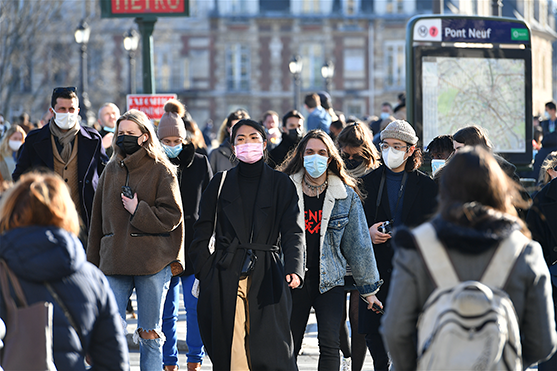
Severe COVID Cases Had Big Impact on Family Finances
Workers who contracted long COVID or suffered the most severe symptoms of the virus felt a big impact on their families’ finances from the resulting disruptions to their work, researchers at the University of South Carolina and Montana State University found.
When the adults in families with children experienced long COVID or got so sick they were hospitalized, they were nearly twice as likely to report having financial difficulty in 2020 and 2021 in an analysis that compared them with parents who had mild symptoms or did not contract COVID. The workers with severe cases were also laid off or furloughed at higher rates.
As a result, the families with severe COVID cases were nearly twice as likely to lose earnings and were far less likely to be able to afford a balanced meal.
Yes, the federal relief checks and enhanced unemployment benefits passed by Congress helped millions of families get by if they missed work. But the assistance wasn’t always enough for the roughly one in 10 families in which a parent or others who take care of children contracted severe COVID, which prevented them from working.
The researchers’ findings “suggest that children – as well as households as a whole – have long-term consequences” when a worker had severe or long-lasting COVID, they concluded.
COVID’s inequities were also a feature of its first couple years, and the researchers found that non-White parents who had severe or lingering COVID were disproportionately affected. They were more often furloughed or laid off than White parents.
As a result, the drop in earnings was larger for non-White parents with severe COVID, as well as for people earning less than four times the federal poverty level, according to the study.
“The COVID-19 pandemic has disproportionately affected racial and ethnic minority groups in the United States, exposing and exacerbating longstanding systemic and social inequities,” the study said.
To read this study by Nicole Hair and Carly Urban, see “COVID-19 Health Disparities and the Economic Security of Families with Children.”
The research reported herein was derived in whole or in part from research activities performed pursuant to a grant from the U.S. Social Security Administration (SSA) funded as part of the Retirement and Disability Research Consortium. The opinions and conclusions expressed are solely those of the authors and do not represent the opinions or policy of SSA, any agency of the federal government, or Boston College. Neither the United States Government nor any agency thereof, nor any of their employees, make any warranty, express or implied, or assumes any legal liability or responsibility for the accuracy, completeness, or usefulness of the contents of this report. Reference herein to any specific commercial product, process or service by trade name, trademark, manufacturer, or otherwise does not necessarily constitute or imply endorsement, recommendation or favoring by the United States Government or any agency thereof.






